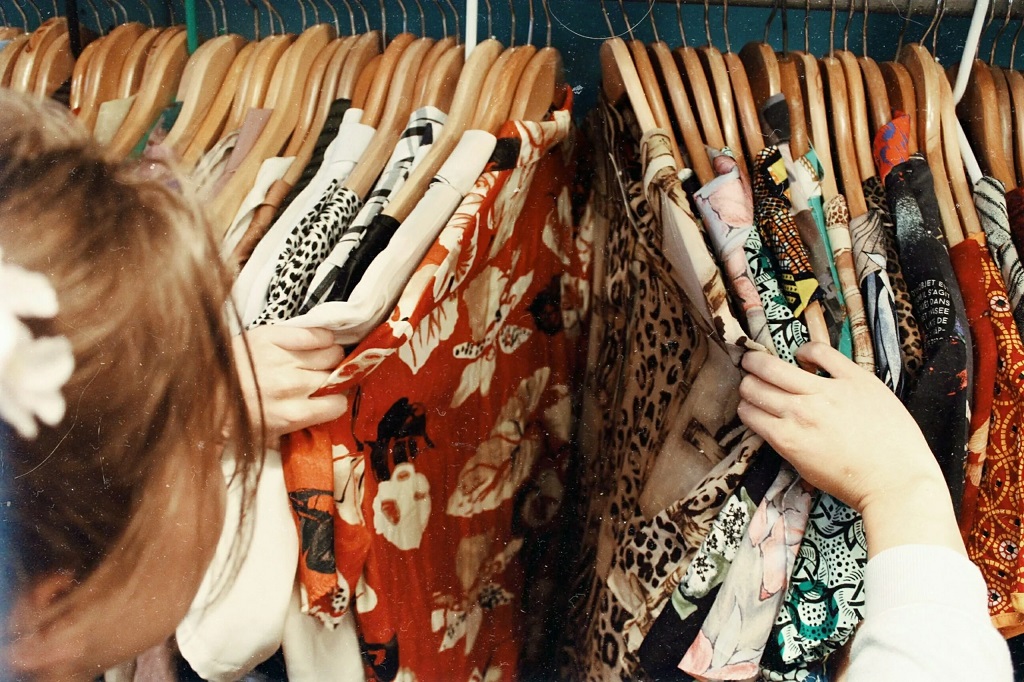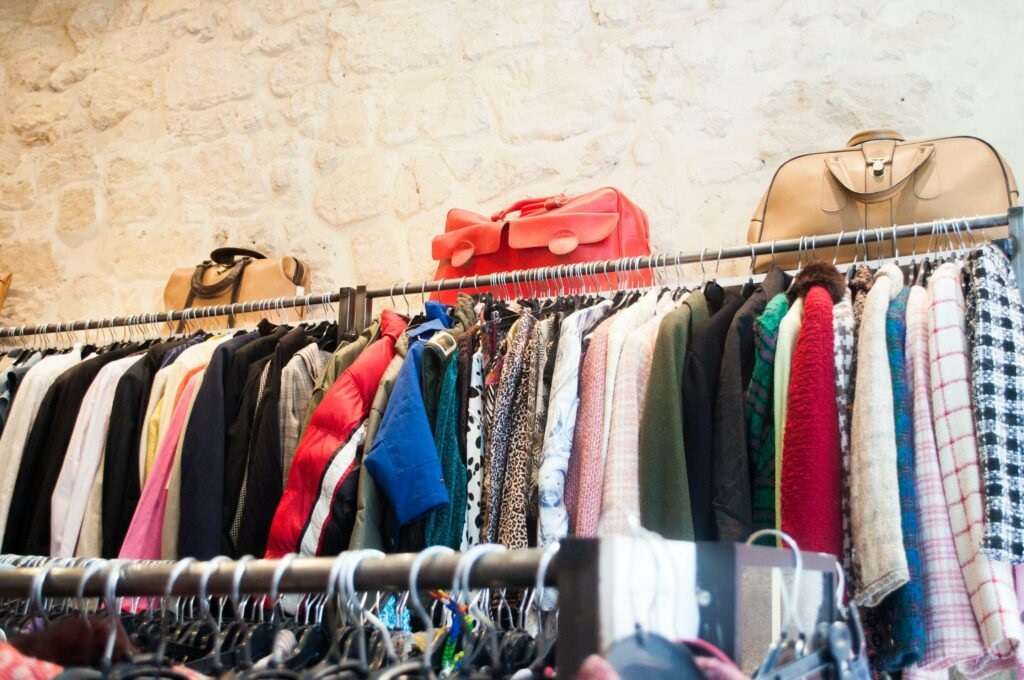Shopping at Goodwill is a great way to save money on clothes and home goods while keeping items out of landfills. But one question that often comes up is whether Goodwill washes the used clothes it sells in its stores. Does Goodwill wash clothes? The short answer is yes. Goodwill does clean all clothing donations before putting them up for sale. However, the specific washing process can vary somewhat between locations.
Why Goodwill Washes Donated Clothes
Goodwill washes all clothing for a few key reasons:
- Cleanliness – Washing helps remove stains, odors, and bacteria that may be present on used clothing. This ensures the items are fresh and clean for the next owner.
- Presentation – A good wash and press make clothing look neat, wrinkle-free, and ready to wear in the store. Shoppers want to buy clothes that look and feel clean.
- Worker Safety – Washing clothes protects Goodwill employees from exposure to germs, odors, or substances that soiled donated clothes may harbor.
- Sellability – Clean clothes sell better than soiled or smelly ones. Washing boosts resale value and appeal for shoppers.
So washing benefits Goodwill’s customers, employees, and sales numbers. It’s a necessary process before placing used clothes on the sales floor.
How Washing Is Done at Goodwill Stores
While all Goodwill locations wash clothes before selling them, their exact washing methods can vary. Here are some common Goodwill clothing washing procedures:
Sorting and Inspection
Workers first sort through donations, checking for stains or damage. Very soiled or unsalvageable items get discarded. Sorters separate clothing that requires special washing treatment.
Pre-treating Stains
Clothes with spots or set-in stains are pre-treated with stain removers and spot cleaners before washing. This helps lift and release stubborn soils.
Washing and Drying
Most Goodwill locations machine wash clothes in industrial washers and dry them in commercial dryers. Detergents, bleaches, and water temperatures are selected according to fiber content and the soiledness of the items. Delicates may be washed gently by hand.
Pressing and Repairing
Clothing gets pressed to remove wrinkles. Workers make minor repairs, like sewing on loose buttons or patching small holes. Garments get steamed or ironed for a neat appearance.
Qualify Inspection
Once washed and dried, clothes undergo a final inspection. Workers check for stains or damage that may have been missed earlier. Unfit items are discarded rather than being put up for sale.
Goodwill’s Special Cleaning Methods
For certain types of used clothing, Goodwill uses extra washing and sanitizing processes, including:
- Disinfecting – Clothes, shoes, or accessories that appear heavily soiled may be disinfected with antimicrobial cleaners. This kills germs and odors that regular washing won’t eliminate.
- Deep cleaning – Heavily stained clothes may need pre-soaking in solvents or repeated wash cycles with strong detergents to get them cleaner. Agitation helps release ground-in soils.
- Odor removal – Clothes that retain strong odors even after regular washing are treated with odor eliminators and odor-neutralizing washes, which remove unpleasant scents.
- Whitening – White clothes that have become dingy or yellowed get washed with bleach or optical brighteners to restore their brightness.
- Steam cleaning – Heavy fabrics like coats and jackets may undergo steam cleaning, which deep cleans without the risks of washing. The pressurized steam kills bacteria.
- Dry cleaning – Silk, leather, sequined, or fragile items are sent to professional dry cleaners, who gently clean clothes that require special treatment.
Why Some Stains May Persist
In most cases, Goodwill’s washing succeeds in getting donated clothes fresh and clean. However, some very stubborn stains may linger even after multiple washings if they are permanently set into the fibers before donation. For instance:
- Old grease stains – Grease can bond to fabrics over time with heat and make a permanent stain. Goodwill washing can only lift some of the oily residue.
- Mold or mildew – Prolonged exposure to moisture can result in mold taking hold. It creates stains and odors deep in the fibers.
- Cellulose browning – Over time, the cellulose in natural fabrics like cotton and linen can oxidize and decay, causing yellowish discoloration.
- Rust – When iron-rich water interacts with fabric, it causes bronzing and brown stains. Rust damage is often permanent.
- Dye transfer – Dye shedding from a vibrant garment onto a lighter one results in irreversible dye stains.
So be understanding if a garment has minor stains that cleaning didn’t completely remove. Check clothing carefully before purchasing. With effort and repeated washing, some stubborn stains will fade over time.
Odors May Linger in Some Cases
Goodwill washing also generally succeeds in removing odors and freshening fabrics. But some challenging odors can occasionally linger, like:
- Pet odors – The oils in pet dander and urine can leave lasting scents. Goodwill uses enzymatic cleaners to help remove pet smells.
- Smoke odors – The residues from cigarette or fire smoke bind tightly to fabrics. Multiple odor removal treatments may only partly reduce the smells.
- Mothball scent – The volatile oils in mothballs can gas off into fabrics over years, making their pungent scent tricky to wash out entirely.
- Mildew or mold – The musty smell can stubbornly persist when mold has taken root deep in fibers. It resists being washed away.
- Perfumes or colognes – The oils in fragranced products cling to fabric and resist full removal. Light scents may linger after washing.
If an odor bothers you, it’s best to avoid that item. But do keep in mind that Goodwill makes an effort to minimize scents. Faint odors don’t necessarily mean the garment is unclean.
Should You Re-Wash Goodwill Clothes at Home?
Goodwill thoroughly launders donated clothes before selling them. But if you purchase used clothes at a Goodwill store, you may be wondering if you should re-wash them when you get home. Here are some factors to consider:
- Your tolerance – If cleanliness is paramount to you, re-washing provides added assurance. For most people, Goodwill’s washing is sufficient.
- Sensitivities – Those with sensitive skin or allergies may want to re-wash clothes using their preferred detergents. This removes any residues.
- Heavily worn items: For extra hygiene, you may opt to re-wash threadbare clothes, intimates, or baby clothes.
- Musty odors – If you notice a mildew smell, re-washing with odor removers can help freshen the fabric.
- ** Whiteness** – You can boost the whiteness of whites by re-washing with bleach.
- New fabrics – Clothes made with brand-new fabrics often shed some excess dye when first washed.
In most cases, washing clothes again after purchasing from Goodwill is optional. But it can provide extra assurance and freshness. Use your best judgment based on the items, your needs, and Goodwill’s washing practices.
Goodwill Washing vs Dry Cleaning
For some delicate fabrics like silk and wool, Goodwill sends items out to professional dry cleaners. Dry cleaning uses chemical solvents and gentle cleaning agents instead of water, detergent, and agitation. This specialized process cleans fabrics without the risk of shrinkage or damage that can come from water-based washing.
However, dry cleaning is also less effective at removing certain types of soiling, such as oils and perspiration residue, and deodorizing fabrics. So Goodwill chooses dry cleaning only for specialty fabrics labeled “dry clean only.” Most everyday clothing at Goodwill still goes through regular machine washing for deeper cleaning and disinfecting.
Donating Clean Clothes to Goodwill
Keep in mind that the cleaner clothes are when donated to Goodwill, the better. Donating freshly washed clothing helps:
- Make washing easier for Goodwill workers
- Reduce Goodwill’s water, energy, and detergent use
- Minimize odors and stains in the store
- Get clothes onto the sales floor faster
So launder and thoroughly dry any used clothes and linens before donating. Remove all stains. This creates less work for Goodwill and benefits the next owner of your quality donated clothing.
Goodwill Clothing Is a Sustainable Choice
Shopping at Goodwill diverts reusable clothes away from landfills and avoids producing brand-new textiles. Goodwill’s washing process keeps donated clothes fresh and hygienic for the next owner.
More Reasons to Buy at Goodwill
Beyond their washing practices, there are many additional benefits to shopping at Goodwill over buying new clothes:
It’s Economical
- Goodwill prices are a fraction of retail costs for comparable new clothing. Even with a thorough cleaning, their overhead is far lower than traditional retailers.
- Designer brands and quality clothes often show up for bargain prices well below value. You can score luxury brands for less.
- Income-eligible shoppers may receive discounted voucher coupons, allowing extra savings.
- Bulk clothing sales like “Fill-a-Bag for $X” provide savings on large quantities.
So, you stretch your budget much further when shopping Goodwill’s offerings.
It’s Environmental
- Donating used clothes prevents them from clogging landfills as waste. Goodwill gives them a renewed life.
- Washing and reselling extend the useful lifespan of quality fabrics that have years of wear left.
- Choosing to use lessens the demand for new textile production, which requires dyes, pesticides, and energy consumption.
- Recycling clothing saves over 700 gallons of water that typical new fabric production expands.
It Provides Opportunity
- Many Goodwill locations offer job training, career services, and employment placement for people facing challenges. When you donate and shop there, you help fund these programs.
- Local Goodwill sales directly support community initiatives in your area, like skills training for disabled or underprivileged people.
- They make clothing available to those in need who may not be able to afford full retail prices for essentials like work uniforms.
- Sales fund local scholarships, youth mentoring programs, and other outreach services.
So, Goodwill washing and selling used clothes has economic, ecological, and social benefits well beyond just saving money. It’s smart, sustainable, and makes a difference.
Frequently Asked Questions
Q: Does Goodwill dry clean any clothing?
A: Yes, Goodwill dry cleans delicate materials labeled “dry clean only, ” such as silks, wools, sequined fabrics, and others that require gentler cleaning without water. Most everyday clothing is machine washable and gets regularly laundered.
Q: Can you return or exchange clothing at Goodwill?
A: Most Goodwill locations do not allow returns or exchanges on clothing or goods purchased. However, some may offer store credit within a few days for defective items. Check your local store’s specific policy.
Q: How often does Goodwill rotate in new clothing inventory?
A: Goodwill locations typically put out freshly cleaned and sorted clothing donations each day. New inventory continuously cycles into the sales floors as donations come in and sell-through. More high-value items emerge at the start of each season.
Q: Does Goodwill offer any coupons or discounts?
A: Most Goodwill locations periodically offer sales, doorbuster deals, coupon promotions, clearance racks, and other discounted specials both online and in-store. Signing up for their email list can provide discount alerts.
Q: Can you negotiate prices at Goodwill?
A: Goodwill store prices are typically fixed, with little room for negotiating discounts. But you can ask, especially for bulk purchases or buying multiple items. Higher-end Goods retail shops may have more flexibility, too.
Q: Is Goodwill clothing always second-hand?
A: The vast majority of Goodwill’s clothing comes from individual donations of used items. But some new unsold overstock merchandise or samples may also find its way into inventory from retail partners.
Conclusion
Shopping at Goodwill offers savvy shoppers the ability to save substantially on clothing, accessories, and home furnishings while keeping used items out of landfills. Goodwill’s team washing of all donated clothing prior to sale ensures that everything on the racks is clean, pressed, and ready to wear again.
While a few stubborn stains or faint odors may linger on some garments, the thorough laundering process removes most soils, bacteria, and scents from fabrics. Goodwill takes care to treat stains, sanitize, remove odors, whiten, and gently clean clothes as needed. So, most shoppers can confidently wear Goodwill clothing next to their skin without health concerns.

